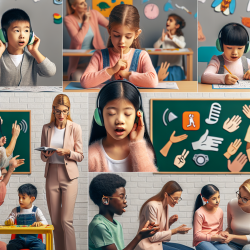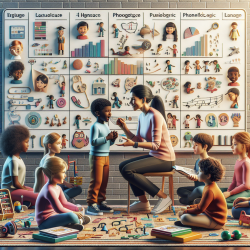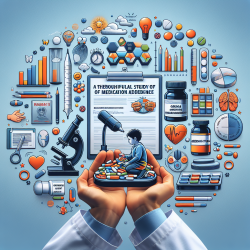Understanding Mental Health Screening After Mild Traumatic Brain Injury (mTBI)
Mild traumatic brain injuries (mTBI) are more than just a bump on the head. They can lead to significant mental health challenges, including major depressive episodes, anxiety disorders, and posttraumatic stress disorder (PTSD). For practitioners working with mTBI patients, early detection of these conditions is crucial to improving outcomes. This is where mental health screening tools come into play.
The Power of Screening Tools
Recent research published in JAMA Network Open evaluated the diagnostic accuracy of three self-report screening tools: the Patient Health Questionnaire–9 (PHQ-9), the Generalized Anxiety Disorder–7 (GAD-7), and the Primary Care PTSD Screen for DSM-5 (PC-PTSD-5). These tools were tested for their ability to detect mental health disorders in adults with mTBI.
- PHQ-9: This tool is designed to identify major depressive episodes. It showed high diagnostic accuracy, making it a reliable choice for practitioners.
- GAD-7: Known for detecting anxiety disorders, this tool also demonstrated strong performance in identifying PTSD, offering dual benefits.
- PC-PTSD-5: While traditionally used for PTSD screening, it was less extensively studied but still showed promise in the mTBI population.
Key Findings and Implications
The study found that all three tools had acceptable diagnostic accuracy, with the GAD-7 even outperforming the PC-PTSD-5 in detecting PTSD. This suggests that practitioners can confidently use these tools to screen for mental health disorders in mTBI patients. However, it's important to note that specificity was lower in patients with persistent postconcussive symptoms (PPCS), who also had a higher prevalence of mental health disorders.
For practitioners, this means that while a positive screen should prompt further diagnostic evaluation, the presence of PPCS should be considered in the interpretation of results. The overlap between PPCS and mental health symptoms can complicate diagnosis, but understanding this relationship is key to effective treatment planning.
Future Directions
The study highlights the need for further research to corroborate optimal test cutoffs for these screening tools in the mTBI population. As practitioners, staying informed about the latest research and adapting screening practices accordingly can greatly enhance patient care.
For those interested in diving deeper into the research, the original study provides a comprehensive analysis and is available for further reading. Diagnostic Accuracy of Mental Health Screening Tools After Mild Traumatic Brain Injury.
By integrating these tools into routine practice, practitioners can play a pivotal role in the early detection and management of mental health disorders in mTBI patients, ultimately leading to better health outcomes.










